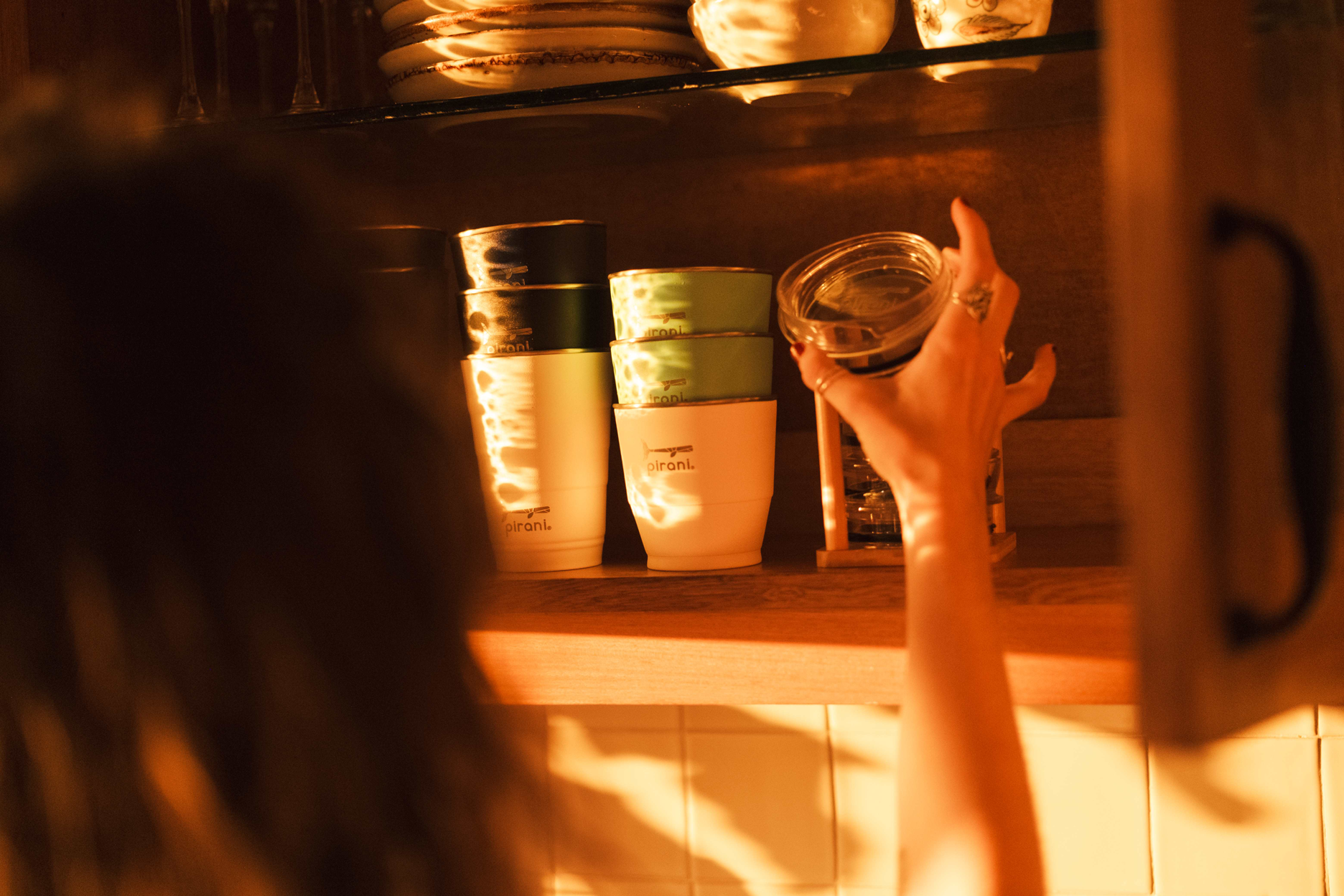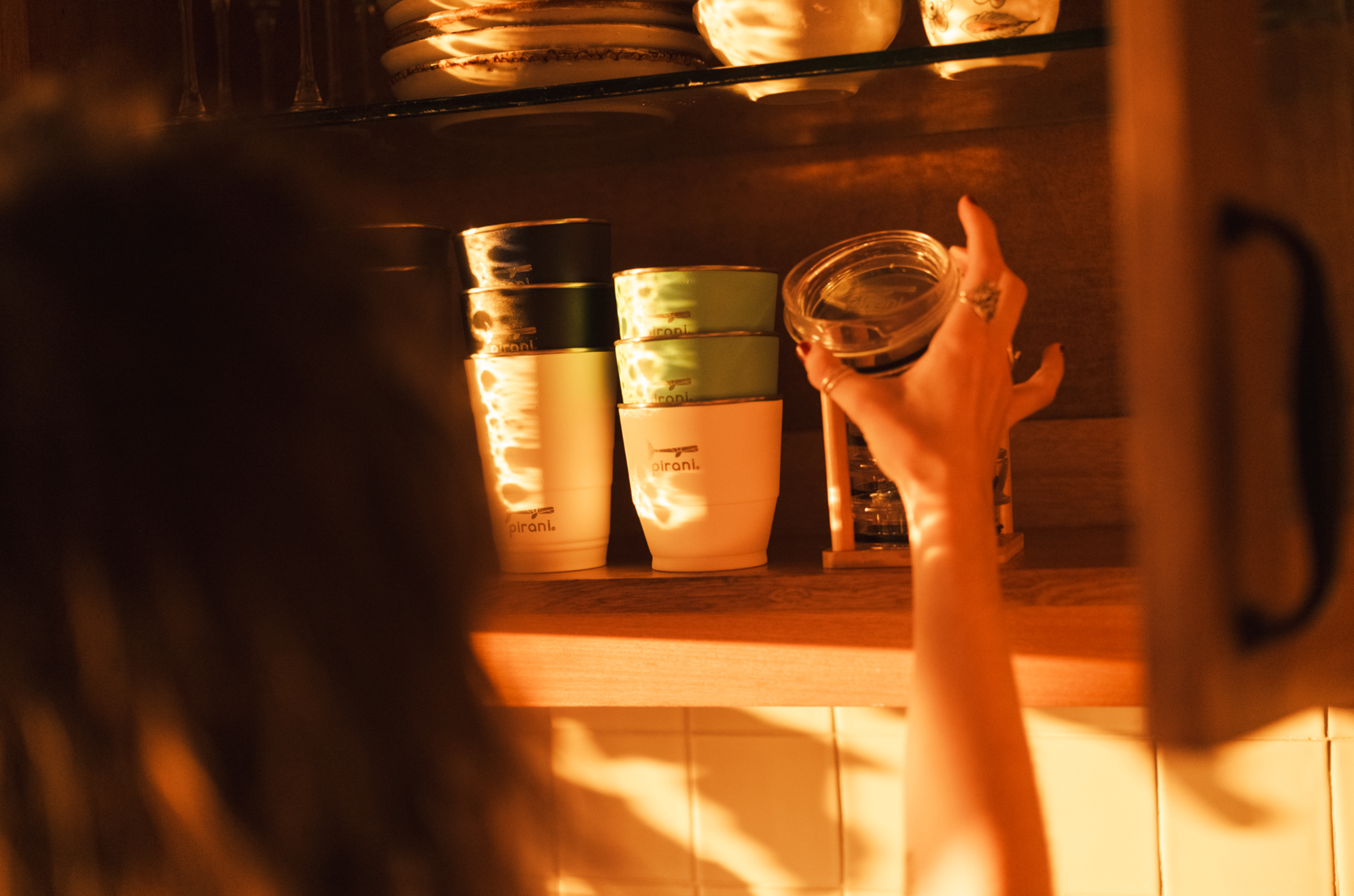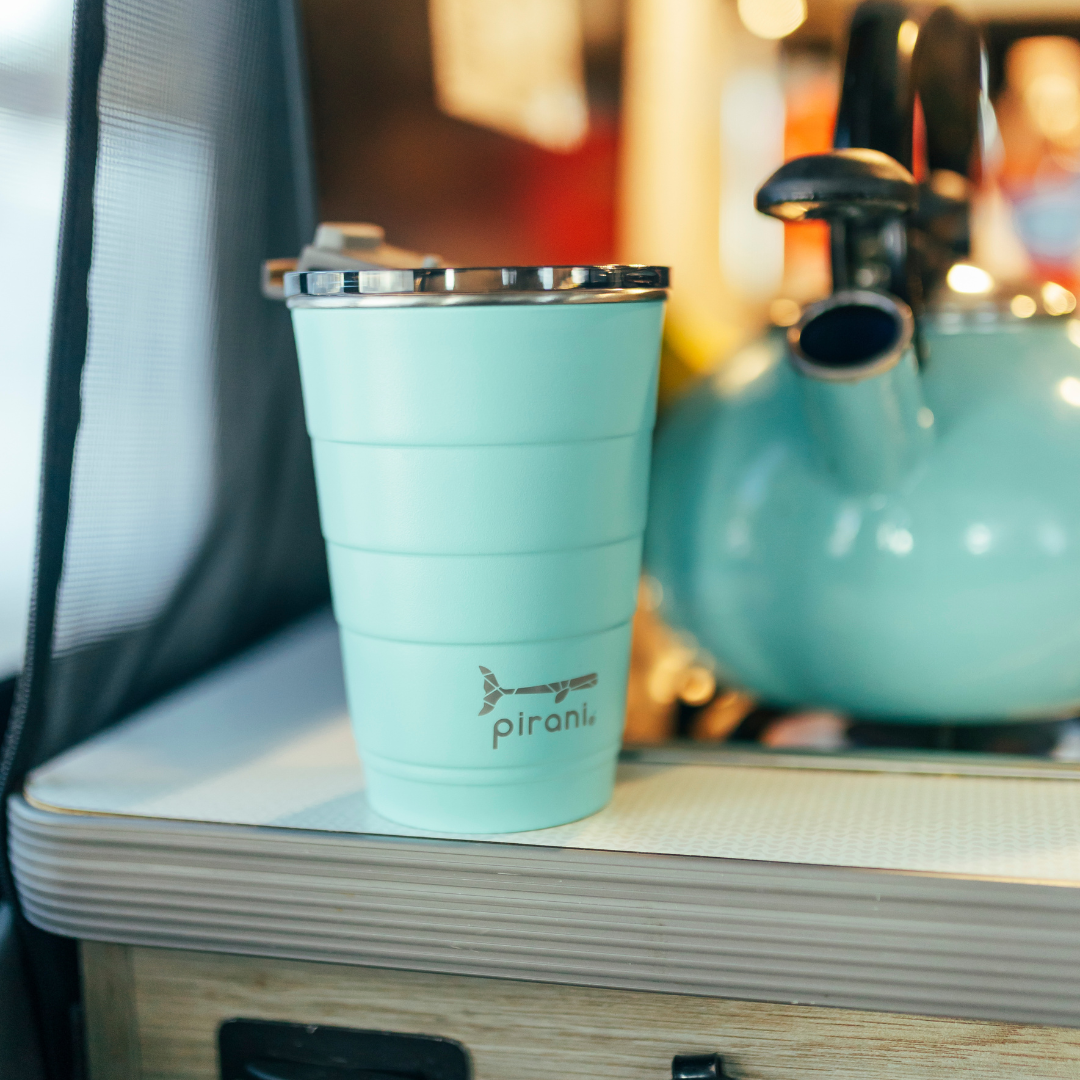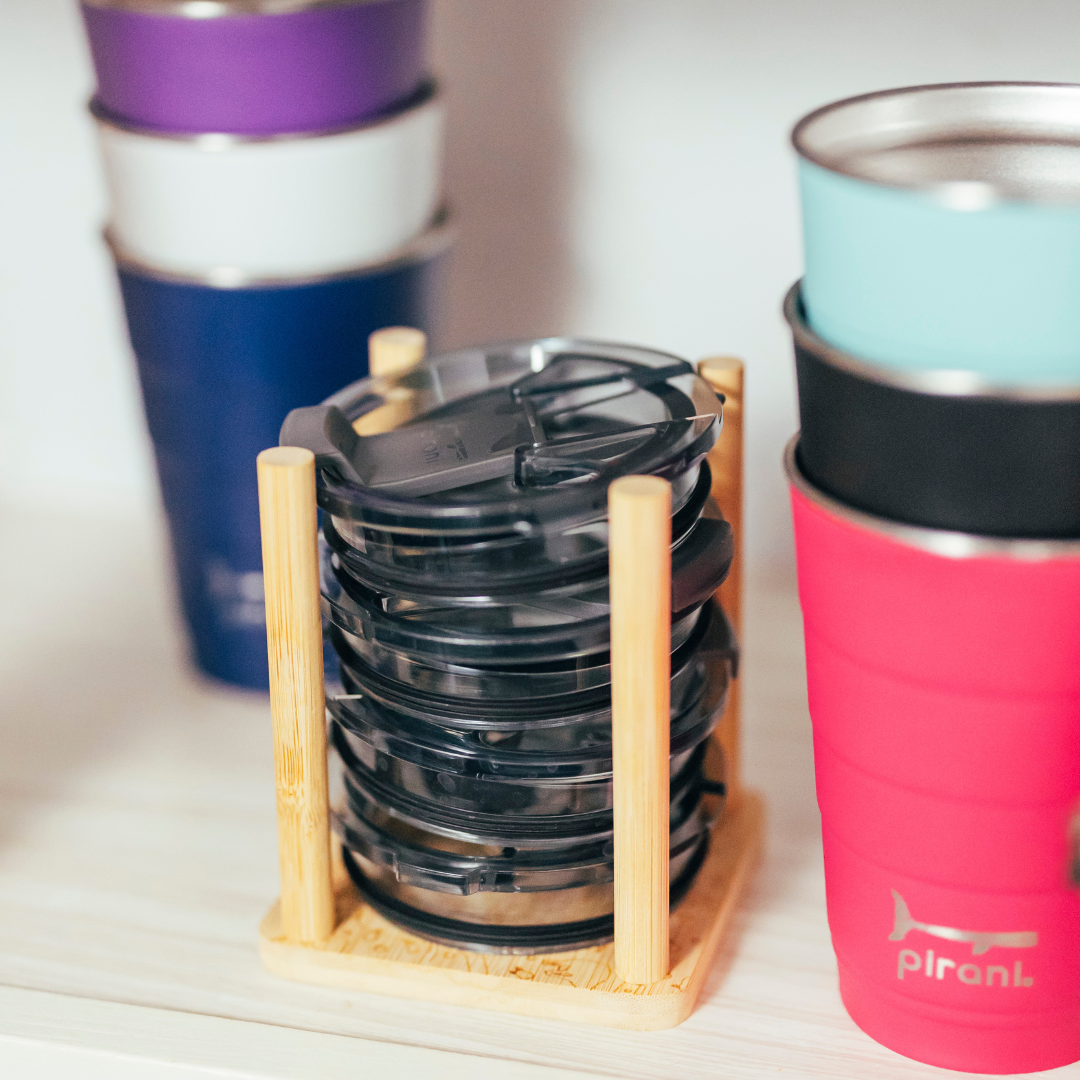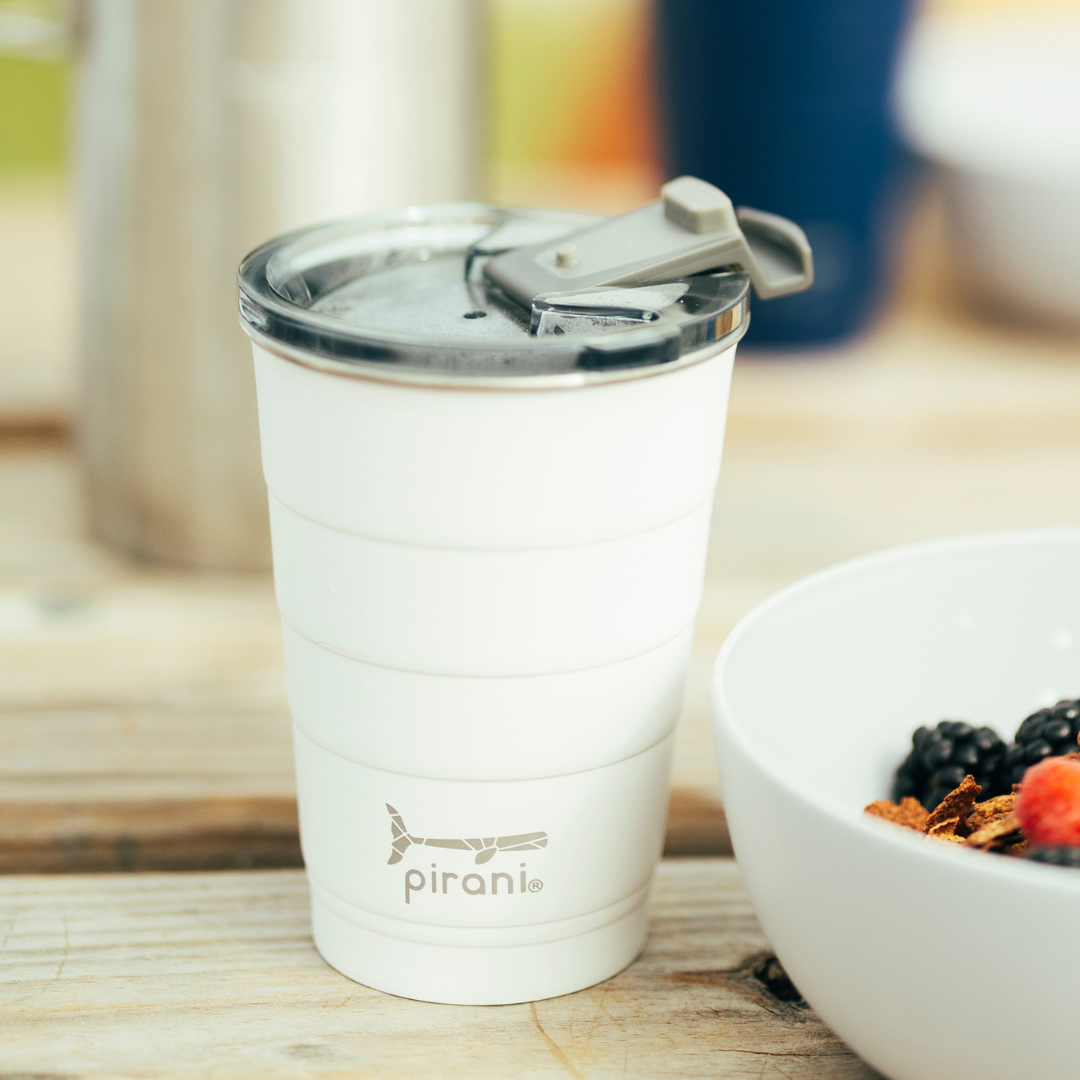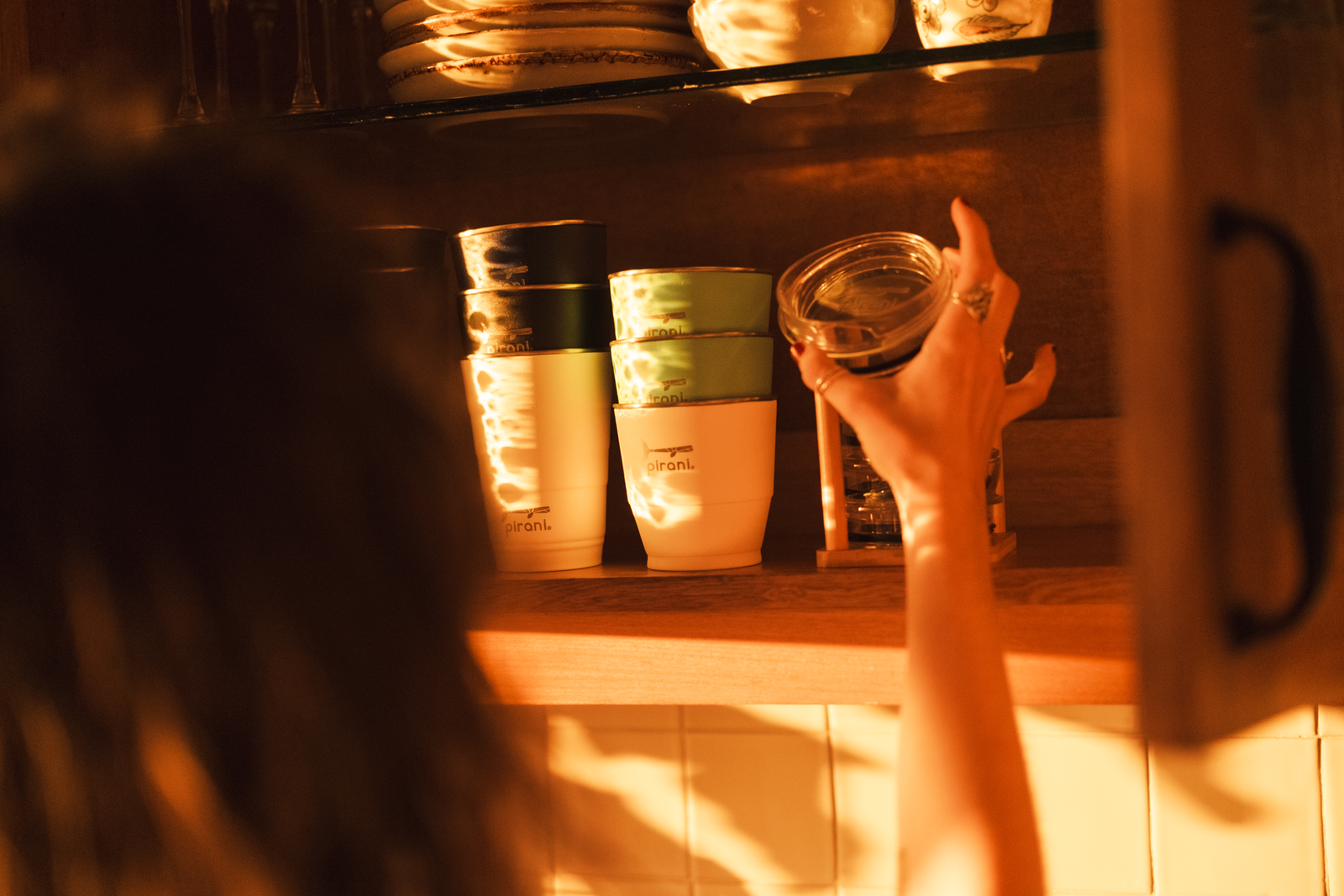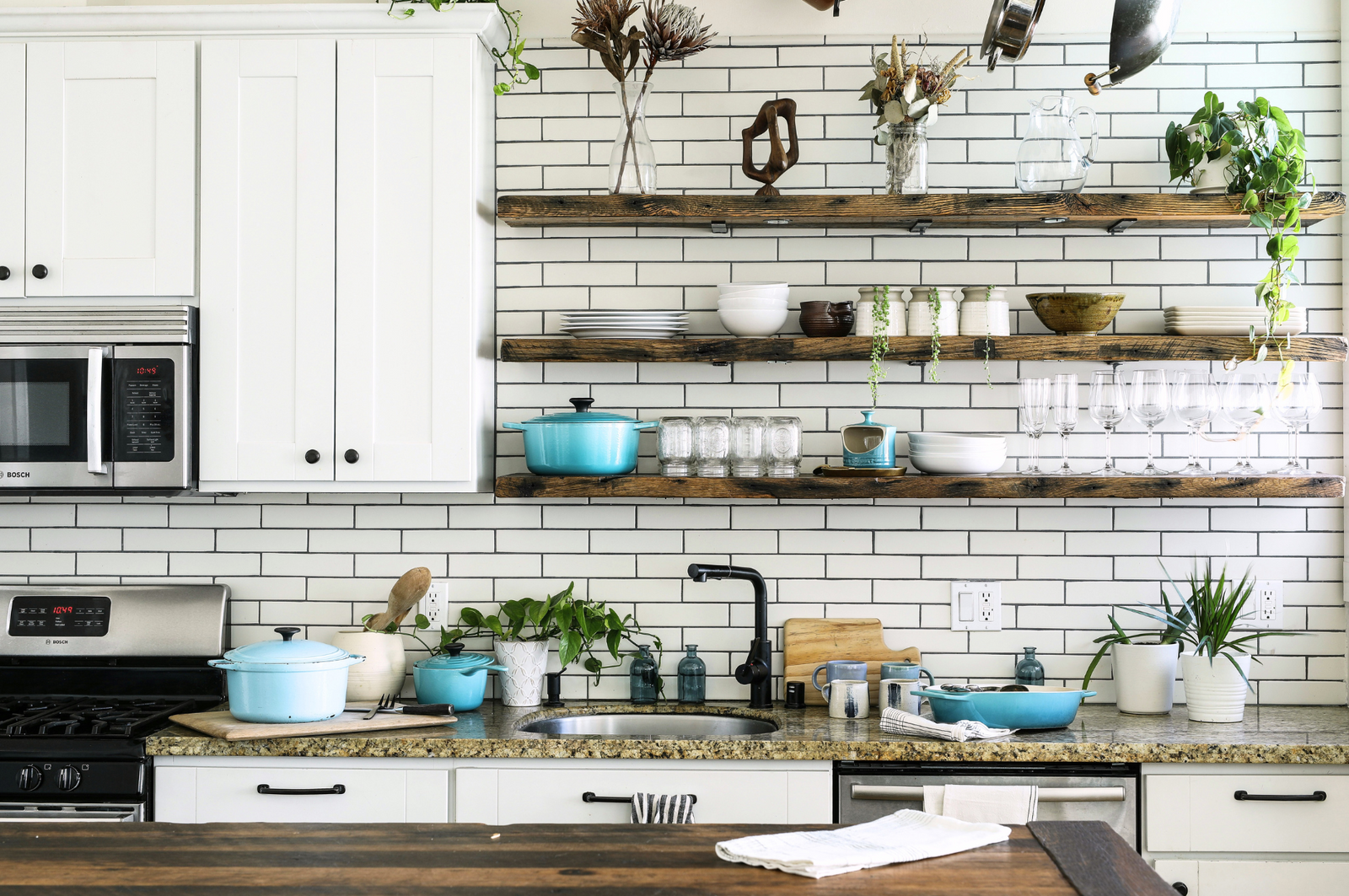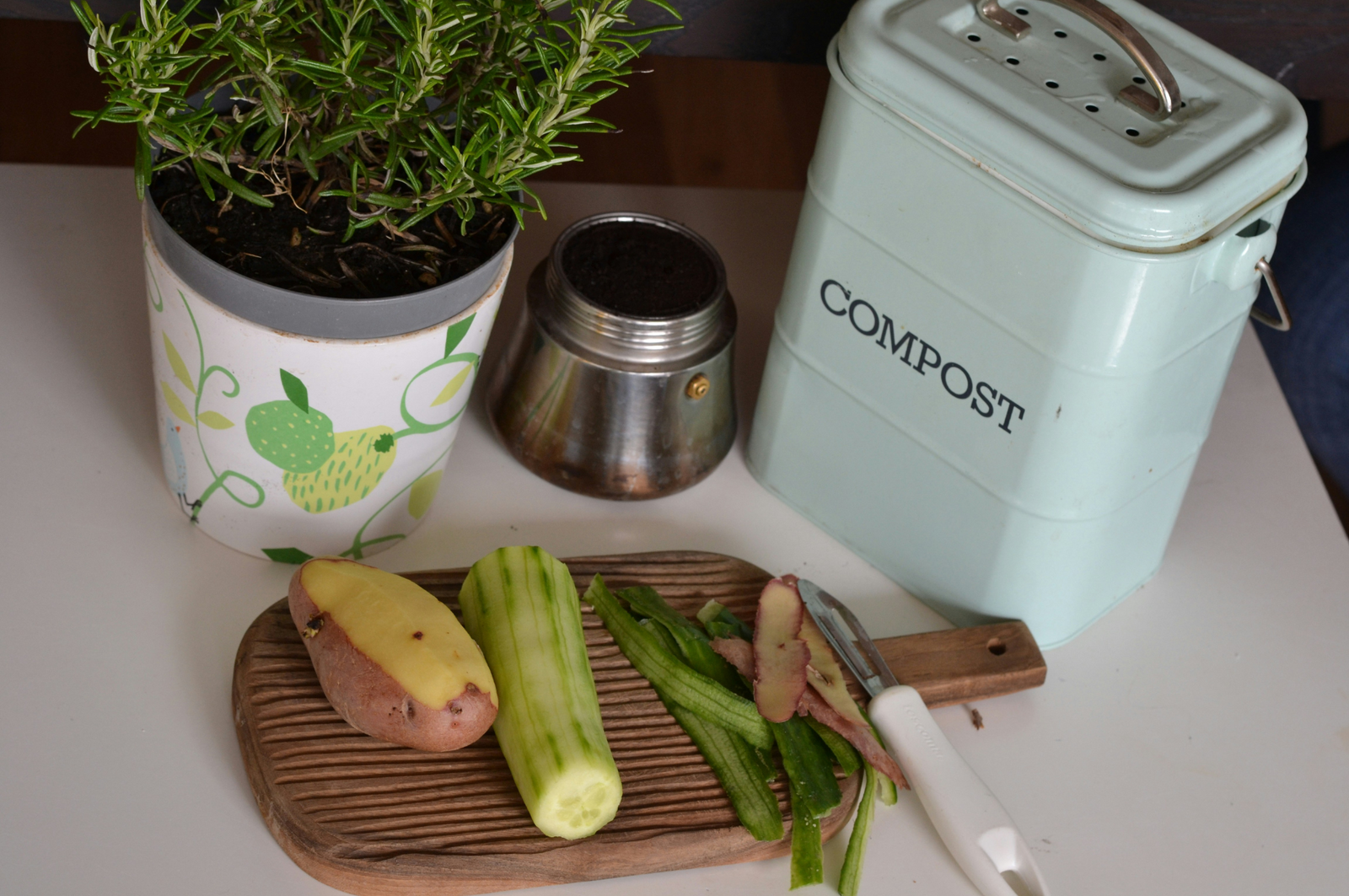If you’ve been paying attention to environmental news, you’ve probably experienced what’s become known as ‘climate anxiety.’ It’s that sinking feeling that climate change is affecting the planet at an alarming rate, and there’s not much one single person like yourself can do about it. And when you look at daunting stats, it can feel completely overwhelming. But, every single person has the power to contribute to the end of climate change and a lot of times this starts from the comfort of your own home!
And one area of your home that could use the biggest eco-makeover is the kitchen! Think about it, what other room are you producing the most trash? The zero-waste movement was created to curb some of this unnecessary waste. A true zero-waste kitchen is essentially a kitchen that produces no waste whatsoever. We know, it’s daunting. But before you throw in the dish towel, you shouldn’t get discouraged because you feel like it has to be all or nothing.
While zero-waste suggests an absolute ban on throwing things away, low-waste or minimal waste kitchens are perfectly acceptable in our books! Feeling the pressure to be a climate perfectionist can lead to more overwhelm and eventually giving up on the objective altogether. Small steps can make a big difference, especially if many people are participating.
In fact, there are many simple ways to slowly introduce your home to a zero-waste kitchen. From using reusable stackable drinkware to composting your food scraps, you can build easy systems and habits to make your kitchen as sustainable as possible.
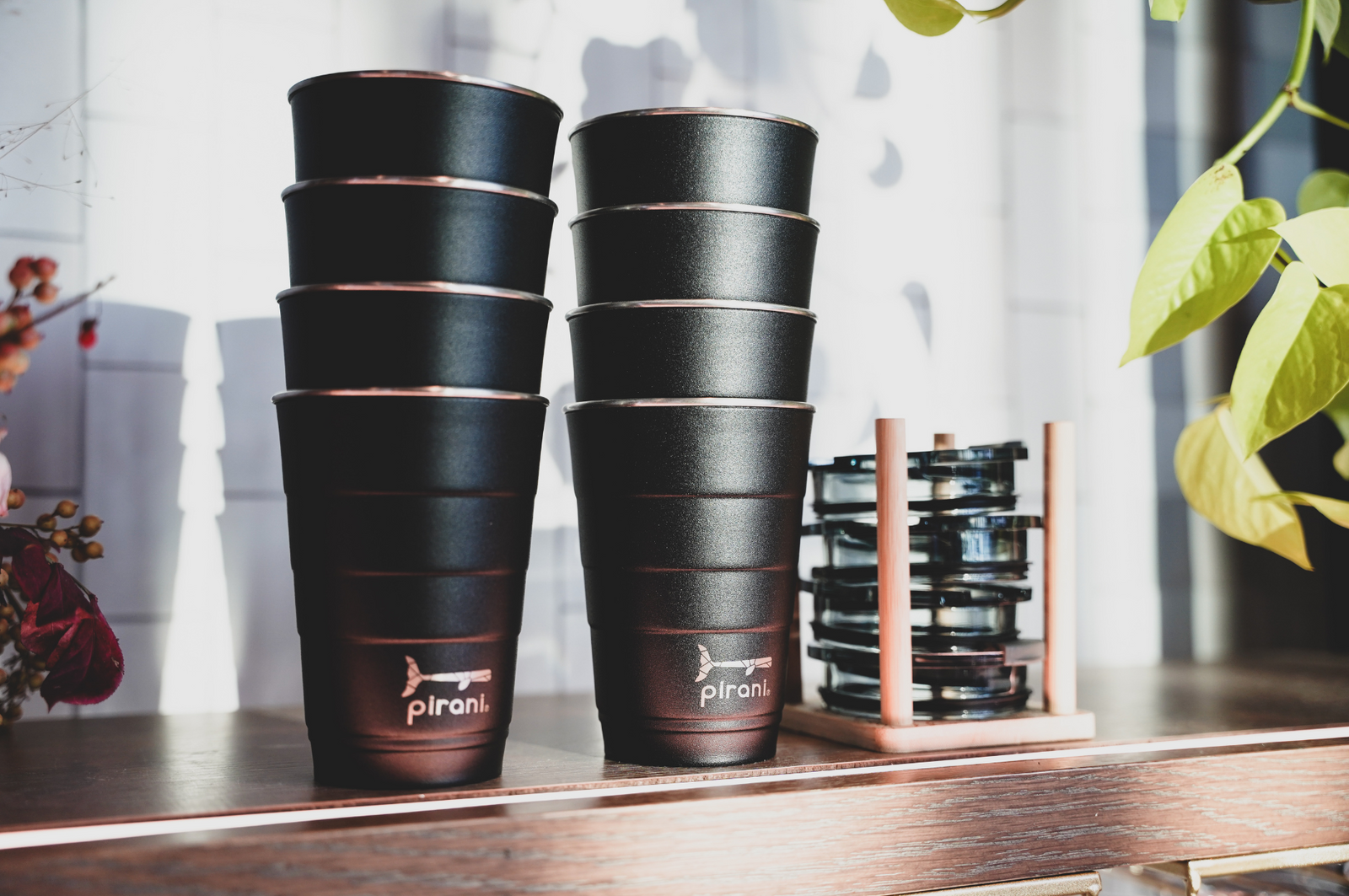
The Importance of a Zero Waste Kitchen
Choosing to transition to a zero waste kitchen has plenty of benefits. Food waste is a huge problem. Each year, 119 billion pounds of food is wasted in the United States. And while discarded ‘ugly’ and damaged produce and food waste in restaurants is part of the problem, an estimated 30-50% of food waste is produced in our own kitchens. Yikes. Then you add in packaging, single use utensils and drinkware, shopping bags, etc. it’s no wonder the kitchen produces so much waste!
Single use plastic is extremely common in the kitchen. Whether you’re purchasing food from the grocery store, bringing home take-away or hosting a gathering, plastic is everywhere! And as we all know, single-use plastic contributes to the growing problem of plastic pollution in the ocean and rivers, where they can injure or kill wildlife.
The ironic part? We may actually be eating the plastic we use in the kitchen. Plastic breaks down into micro-particles, which can enter the food chain when consumed by smaller organisms, leading to potential human health risks as plastic accumulates in the food we eat. Not so yummy! By working toward a zero-waste kitchen; however, we can minimize many of these disastrous effects on the environment.
Zero Waste Kitchen Products: Sustainable Alternatives
When it comes to minimizing waste in the kitchen, there are plenty of eco-friendly products available to make the job a bit easier. Here are just a few:
1. Eco-friendly Stackable Drinkware: Pirani Life is the perfect drinkware for a zero waste kitchen! Our insulated tumblers negate the need for plastic, paper or styrofoam cups. They keep drinks hot or cold for hours, and even come with lids to avoid any spills or to take on the go. Pirani tumblers are stackable, making them the perfect space-saver in your cabinet. Zero waste pantry organization has never been easier. They’re also dishwasher safe making clean up super easy! Stocking your home with Pirani is an easy way to work towards a plastic free kitchen.
2. Swedish Dishcloth: It’s time we kicked paper towels to the curb permanently! According to the EPA, paper towels and tissues created 7.58 billion pounds of waste in 2018. And while paper towels are biodegradable, when breaking down in a landfill they produce methane gas - a leading contributor to climate change. Swedish dishcloths is a reusable, compostable cloth that can be used to clean in replacement of paper towel and plastic sponges.
3. Compostable Dish Brushes: Composting is a great way to reduce waste in your kitchen. But it doesn’t just have to be composting food waste. You can also find kitchen tools that can be composted instead of thrown in the trash. Swap out plastic dish brushes for compostable alternatives made from natural materials like bamboo and plant-based bristles. These brushes are biodegradable and can be composted at the end of their life cycle.
4. Reusable Coffee Filters: Swap disposable paper filters for reusable coffee filters made from stainless steel or organic cotton. These filters can be washed and reused, eliminating the need for single-use paper filters. Not only does this reduce waste, but it also allows you to enjoy your favorite cup of coffee while being environmentally conscious.
Incorporating these sustainable alternatives into your kitchen routine can significantly contribute to reducing waste and promoting a more eco-friendly lifestyle.
DIY Zero Waste Kitchen Essentials
While stocking your kitchen with zero waste kitchen accessories is a great start to minimizing waste at home, there are plenty of low cost DIY projects you can do as well. These are also great projects to do with kids to teach them about the environment!
Homemade Cleaning Products: Choose a recipe for non-toxic and eco-friendly cleaning products, like an all purpose cleaning spray, kitchen deodorizer or glass cleaner. A lot of these DIY’s use commonly found ingredients like baking soda, vinegar and essential oils that you may already have around the house!
Reusable Produce Bags: Instead of using plastic produce bags at the grocery store, make your own bag to take with you! Lightweight bags can be used to carry fruits, vegetables, and bulk items, reducing the need for disposable plastic bags. Try making this muslin bag drawstring bag or if you want to avoid sewing, create this super simple T-shirt tote bag with just an old t-shirt and a pair of scissors!
DIY Natural Food Wraps: Food wraps like Beeswax wraps are a great way to wrap and preserve food, eliminating the need for plastic wrap or aluminum foil.
This DIY is a bit more intensive than the previous two, but still very doable! Check out this Beeswax wrap project you can do at home. Plus you can choose fabrics with cute colors or fabrics, and they also make great gifts!
DIY projects are a fun way to adopt cost-effective and sustainable practices into your home!

Tips for Minimizing Food Waste in Your Kitchen
Food waste is obviously one of the biggest sources of garbage created in your kitchen. Luckily there are some simple ways to reduce this waste and move toward a zero waste kitchen. Making a meal plan ahead of time helps reduce overbuying and ensures ingredients are used efficiently. Made too much? Use leftovers creatively by repurposing them into new meals or incorporating them into other dishes.
Educate yourself on expiration dates and understand the difference between "best before" and "use by" dates to prevent unnecessary discarding of perfectly safe food. Freeze extra produce, such as fruits and vegetables, before they spoil to preserve their freshness so you can use them later. Get creative with imperfect or bruised produce by incorporating them into smoothies, soups, or sauces.
Invest in a small compost bin for your counter or under your sink to throw into your municipal compost container or one you have outside. When you do have food that can’t be eaten like food scraps, eggshells, etc., compost them instead of throwing them away to create nutrient-rich soil for gardening. You can use the soil in a small herb or vegetable garden to grow your own fresh ingredients, reducing the reliance on store-bought produce.
Even incorporating just a couple of these tips into your kitchen routine will greatly reduce food waste and help the environment! Plus you’ll feel great knowing you’re not wasting perfectly good food!
Conclusion:
Adopting a zero waste kitchen is a journey towards a more sustainable and environmentally conscious lifestyle. By implementing simple tips, you can make a significant impact in reducing waste and supporting a healthier planet. Remember, small changes in our daily routines can add up to make a big difference.
Incorporating Pirani reusable stackable drinkware into your zero waste kitchen is a fantastic start to minimizing waste. With an innovative design and durable construction, Pirani drinkware offers a sustainable alternative to single-use cups and bottles. By choosing Pirani, you can enjoy your favorite beverages on the go while reducing plastic waste and creating an organized zero waste kitchen.
Together, we can create a more sustainable world, one step and one sip at a time. Cheers to a zero waste kitchen and a brighter future!



